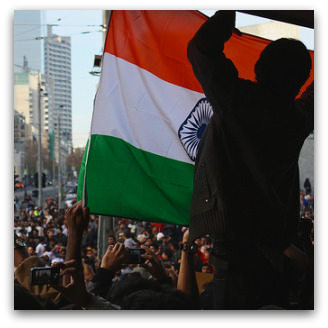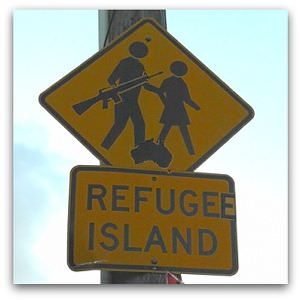Keywords: Anti-Discrimination
-

RELIGION
- Frank Brennan
- 09 February 2010
'Tonight I want to reflect in light of the National Human Rights
Consultation how we as Church can do better in promoting justice for
all in our land. Full text from Frank Brennan's 2010 McCosker Oration, 'The Church as Advocate in the Public Square: Lessons from the National Human Rights Consultation'.
READ MORE
-

RELIGION
- Frank Brennan
- 28 January 2010
1 Comment
The full text of Frank Brennan's January 2010 address to the Australian Association of Catholic Bioethicists, 'Toothless, Trojan or True to Trinitarian Anthropology? Reflecting on the 2009 National Human Rights Consultation'.
READ MORE
-

RELIGION
- Frank Brennan
- 14 October 2009
1 Comment
Even if all our recommendations were implemented tomorrow, there would still be vulnerable
Australians missing out on essential economic and
social rights. Responsibility for meeting these needs cannot rest
solely with government. We need to take
responsibility for each other.
READ MORE
-

INTERNATIONAL
- Moira Rayner
- 13 August 2009
What do our major religions have to fear from changes to equal
opportunity law? The challenge is a worthy and a practical one: in what way do the
activities of religious institutions actually reflect the values of
their prophets and visionaries.
READ MORE
-

INTERNATIONAL
- Denis Fitzgerald
- 13 August 2009
A religious purpose is at the heart of Catholic Social Services. Because of this
purpose, organisations need to be able to recruit people who support
the social mission of the Church, and whose conduct will not compromise or undermine the witness of the Church.
READ MORE
-

INTERNATIONAL
- Moira Rayner
- 13 August 2009
10 Comments
Victoria's Equal Opportunity Act allows religious and quasi-religious groups
and individuals to 'discriminate' lawfully. It's hard to see the relevance of the beliefs or
lifestyle of a cleaner or clerk in an independent,
para-religious school.
READ MORE 
-

AUSTRALIA
When discussing racism, the response is as important as the
accusation. The slow response
from police and political leaders to the recent spate of
Indian-bashings demonstrates what can occur when racism is tackled
passively.
READ MORE 
-

RELIGION
- Frank Brennan
- 26 May 2008
15 Comments
Cardinal George Pell opposes a bill of rights
in any form, but there are pros and cons. Some judges are tempted to
extend their reach, running ahead of the public in forcing a social
agenda.
READ MORE 
-

RELIGION
- Frank Brennan
- 26 May 2008
1 Comment
The text is from Professor Frank Brennan's 2008 Institute of Justice Studies Oration from 22 May 2008.
READ MORE
-

AUSTRALIA
Australia's refugee regime may represent the Western world's worst practice. The Government has
abolished flawed and dehumanising temporary protection visas, but a more substantial review is required to ensure asylum seekers enjoy equal protection under Australian law.
READ MORE 
-

AUSTRALIA
The Troy Buswell saga has highlighted the issues of workplace bulling and sexual harassment. Employees and management need to work to undermine the look-away culture that allows such behaviour to flourish.
READ MORE 
-

AUSTRALIA
- Maurice Rickard
- 19 September 2007
A far reaching social reform such as uniform fertility laws requires sustained debate. It's not up to legislators and medical practitioners to decide what constitutes a proper use of medicine. Medicine is fundamentally a social practice, one whose goals and purposes in which the entire community has a legitimate stake.
READ MORE 